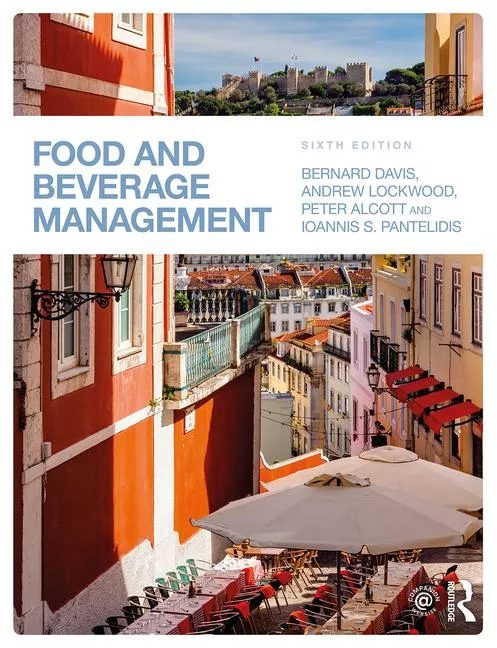Special Report
Artificial intelligence offers beverage-makers powerful insights
Early adopters discovering flavor innovations, marketing advancements through AI

Image courtesy of Getty Images
As artificial intelligence (AI) is causing a buzz because of the increasing popularity of generative AI programs, such as OpenAI’s ChatGPT and DALL-E, within the beverage industry, AI is being applied to understand consumer behavior, which is expected to lead to more accurate predictions, experts note.
In its report, titled “Artificial Intelligence (AI) In Food & Beverages Market & Share Analysis – Growth Trends & Forecasts (2023 - 2028),” Mordor Intelligence notes that, aside from emerging AI technology helping beverage companies with supply chain management through logistics, AI can further enable marketers to reach out to customers personally, engage in deeper interactions and enhance their overall experience with the brand.
“AI can also help to analyze, monitor and deduce customer behavior and sentiments across various social media channels,” the report states. “Therefore, when AI builds an in-depth customer profile, it matches their social experiences about the product. With the help of such powerful insights, firms can now aim to improve the customer experience and make it more productive, thereby leading to market growth.”
Noting that AI is not as intimidating as it once was, Gianna Tomassi, associate director of insights, Black Swan Data, New York, points out that during the past couple of years, AI has become more cost efficient and open, and therefore has been adopted by an increasing number of innovators across industries.
“Especially since the launch of ChatGPT, the internet has been buzzing with talk about artificial intelligence and its potential impact on the market research industry,” she says. “In the past couple of months, every professional working in CPG has experimented with the tool, trying to understand its possible applications for their work stream.
“At Black Swan, we’ve been applying artificial intelligence to social and conversational data for 10 years to help brands better understand their consumers and the future drivers of category change,” Tomassi continues. “We believe that over the coming years, AI will become a core element of every CPG’s product development process.”
Dan Buckstaff, chief marketing officer at SPINS, Chicago, points to how AI has matured, especially when it comes to accessibility.
“Only a few years ago, many AI applications were primarily available to larger companies with the capital and the infrastructure to afford and support its capabilities, but today it has become available to small businesses and consumers alike who hope to streamline and advance their practices,” he explains. “AI can be found everywhere, from the classroom in a small town to the board meeting of a Fortune 500 company, the possibilities for its usage span farther than most researchers have even figured out yet.
“Not only has the technology matured, but human interaction and opinion of AI has continued to change for the better,” Buckstaff continues. “At one time, AI was seen by most consumers as something robotic, with a purpose that only applied to a select few industries, but people are beginning to see the positive possibilities of this technology. Rather than being seen as a replacement, it is considered an enhancement to a task or a job that can cut down on time and allow for focus on greater projects.”
Understanding consumer preferences
As artificial intelligence can provide insights into shopper preference, both in-store and through eCommerce, experts note that through AI, information can be relayed back to the company’s desired form of communication.
“With personalized shopping online, beverage companies can engage with consumers and provide them with recommendations, coupons, sale information, etc., to improve loyalty through the brand,” SPINS’ Buckstaff explains. “When thinking about the values-oriented consumer, a shopper who is passionate and measures every purchase against four core qualifications — good for people, good for health, good for animals and good for planet — this consumer is looking for specific attributes when shopping for their products and AI can assist beverage companies in understanding these shopping habits to further target them.

Image courtesy of Getty Images
“Specifically looking at the ‘good for planet’ qualification, AI can assist the beverage industry in their sustainability efforts by developing new solutions to address packaging, production lines, ingredients and more,” he continues.
Black Swan’s Tomassi points to artificial intelligence and big data helping beverage manufacturers to predict consumer needs and trends.
“[AI] helps our customers create innovations that consumers actually want and get new ideas to market faster. Our approach is very different to the traditional market research process, in that we view the internet as the world’s largest focus group,” she explains. “By leveraging artificial intelligence, brands can pool, parse, and analyze millions of data points in real time. This enables them to truly listen to their consumers by tapping into unprompted, online dialogue at scale.
“Pioneering beverage manufacturers like PepsiCo, Molson Coors, Heineken, and Jägermeister are harnessing this artificial intelligence to inform their flavor innovations, competitive research, and marketing communications,” Tomassi continues.
Detailed analysis, assistance
As artificial intelligence is helping to inform beverage companies on consumer trends, experts highlight how AI provides insights that help manufacturers further capitalize on innovations.
“Our AI-driven platform enables brands to analyze, connect, and predict emerging conversation topics, and determine which will turn into long-term trends for innovation, versus flash-in-the-pan fads,” Black Swan’s Tomassi says. “All these insights were surfaced and analyzed using what millions of people are voluntarily posting about online.”
For instance, as the craft beer and spirits space typically are proactive innovators in terms of flavors, Black Swan’s AI-driven predictive algorithm highlights what consumers are interested in, Tomassi notes.
When it comes to spirits and liqueurs, the trend for spiced variants of popular spirits and ingredients like star anise, annatto and pink peppercorn are trending in consumer conversations, she explains. Meanwhile in the craft beer and cider space, “our platform tells us that bolder flavors continue to pique consumer enjoyment, with ingredients like chili oil and pomegranate seed delivering exciting flavor experiences,” she says.
SPINS’ Buckstaff notes that, while staple flavors will always have a place in the fridge, there are a couple types of flavors that consumers are looking for when rounding out their selection.
“Shoppers are often looking for flavors that are quirky and something they can bring out and make everyone try for a good laugh and will hopefully end up enjoying,” he says. “Pickle, gingerbread, oatmeal fruit, and pumpkin spice are all flavors that are trending and growing in the beer category.
“Another type of flavor consumers shop for are ones that bring back some nostalgia from childhood and remind them of foods or drinks they had growing up. Peanut butter, cookie/pastry/cake, root beer, s’mores, and fruit punch are some of the nostalgic popular beer flavors.”
When it comes to the non-alcohol space, Black Swan’s Tomassi points out the company’s AI-driven predictive algorithm can surface and analyze many of the functional benefit and health led trends within the space.
“These trends are harder to apply directly to the alcohol space for obvious reasons,” she says. “However, they form a broader picture of consumers becoming holistically healthier in their approach to alcohol consumption, and when drinking alcohol our data shows that consumers increasingly value the overall experience.
“This opens up new routes for innovation within the no and low craft alcohol space to lean into the top growing experiential drivers of alcohol consumption, such as heritage and origin,” Tomassi continues. “Here it is just as important for brands to craft a story detailing the origin of ingredients and their sourcing, through to the distillation or brewing process, just as they would for a century’s old cask whisky.”
SPINS’ Buckstaff notes that, as the process for creating many alcohol and non-alcohol beverages is time consuming and technical, AI can provide some assistance.
“AI can aid in the brewing of products to estimate and determine ideal conditions for the best flavor, it can help in product distribution and allow companies to determine how much stock any one location may need,” Buckstaff says. “It can help in the creative process in coming up with recipes and flavor combinations and can create personalization for shoppers as they purchase products and interact with the company both in-store and online.”
Looking for a reprint of this article?
From high-res PDFs to custom plaques, order your copy today!








